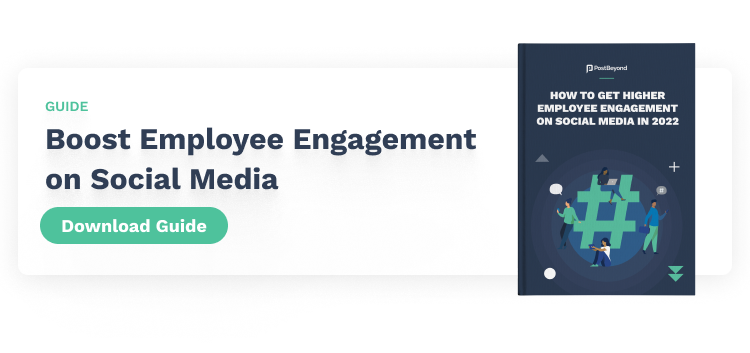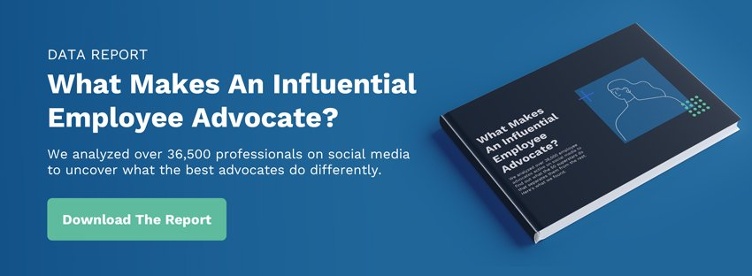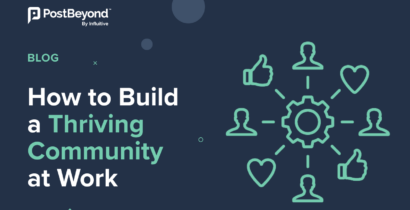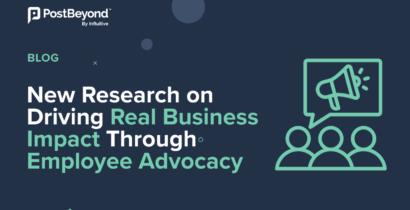Why is employee engagement important?
The Bureau of Labor Statistics reported that 4.5 million people left their jobs in towards the end of 2021. With quit-rates reaching a record high, it’s clear as ever that the “Great Resignation” is now fully underway.
The job market is giving employees lots of options, but it’s also pressuring companies. While today’s environment is great for sourcing talent, you can’t grow without retaining your people.
But a critical piece to talent retention is employee engagement.
You need a highly engaged team to both preserve and grow your hard-earned roster. You can use a few tools to do this, such as internal marketing and survey questions. That said, you will leverage many other benefits from improving engagement. We explore these below.
What Is Employee Engagement and Why Is It Important?
Employee engagement is the investment, involvement, and enthusiasm your employees have towards the company’s work and goals. It’s important because it helps you do two key things:
First, employee engagement lets you gauge the health of your team from the standpoints of company mission, morale, and productivity. Second, you can convert high engagement levels into a number of valuable organizational initiatives, like employee advocacy.
Benefits of Employee Engagement | 9 Reasons

By increasing employee engagement, you can nurture a powerful vehicle to drive positive results across your organization. You do this by putting your employees in a position to thrive. In turn, they drive growth in terms of revenue, brand reach and more.
1. Supports Higher Profits
According to a recent Gallup study, companies with the top employee engagement levels report 23% more profitability compared to disengaged teams. Likewise, the top engaged organizations also report 41% fewer product defects.
Overall, the study shows us that engaged companies outperform in many key areas compared to those with more disengaged employees.
2. Increases Productivity & Motivation
Gallup also found that more engaged companies report 18% better productivity. This trait comes about in a few ways. For example, according to Salesforce, recognizing employees makes them 4.6X more likely to carry out their best work.
3. Improves Customer Service
The same Gallup study also spotted a link between higher employee engagement levels and stronger customer satisfaction. Basically, engaged employees invest more time and attention into delivering stronger customer experiences. As a result, engaged companies report a 10% improvement in customer loyalty.
4. Reduces Employee Turnover
Organizations with high employee engagement levels reported less turnover. According to Gallup, high-turnover organizations said they experienced 18% less turnover. Likewise, the low-turnover organizations reported 43% less turnover.
These results show us that employee engagement reduces turnover in industries with both inherently high and low preexisting rates.
5. Improves Employee Retention and Loyalty
Studies show that employees who are engaged through their company’s benefits and perks are likely to stay at that company. 81% of employees who can readily access benefits say they are loyal to their company. On top of that, 79% of those employees said they were proud of their employer.
These are key data points. Yes, there’s a clear link between employee satisfaction about perks and benefits and their willingness to stay.
But the link between strong engagement and being proud of the employer is key. Those with a good employee experience will want to talk about it to their personal networks. This can support your talent acquisition goals.
6. Reduces Hiring Costs
By retaining more of your employees, your company also saves money. According to Deloitte, a company that loses one employee could spend up to 1.5X to 2X of that person’s salary. Gallup found that replacing that employee can cost around 150% that person’s annual salary.
7. Lowers Staff Absentee Rates
Gallup also found a link between high employee engagement and lower absenteeism. Basically, the companies with high engagement said they experienced 81% less absenteeism than those with lower engagement.
8. Reduces Stress & Anxiety Levels
The above data points also indicate lower stress and anxiety levels in teams. Companies with higher employee engagement levels have teams that perform better and prefer staying. These results point to better job satisfaction and more support for company goals.
9. Supports Employee Health & Safety
Finally, Gallup noted that companies with higher engagement reported 64% fewer workplace accidents. This is a key data point. Safety is a sign of a positive employee experience which encourages them to stay at the company.
Why Is Employee Engagement Important for Employee Advocacy?

The examples above show that strong employee engagement helps growth, revenue, customer satisfaction and other key goals. However, for companies that want to mobilize their employees to advocate for the brand, engagement key.
The strongest advocacy programs lean on authenticity. Basically, when audiences sense that someone likes a brand out of their own will, they’ll listen. In fact, audiences trust the word of their friends, family and other close contacts more than brand messaging.
If your employees are enthusiastic about the company and its direction, they’ll talk about it to their networks.
Overall, if you’re mobilizing your team for employee advocacy, you need them to be informed, engaged, and enthusiastic. To achieve those goals, you need strong employee engagement.
How to Improve Employee Engagement
To improve employee engagement, you’ll need to act across multiple fronts. You should think about higher-level aspects of your company, like its culture. Look into activities that get employees excited and invested.
In today’s environment, you should also add strategies that engage your virtual teams. Learn more in our article on employee engagement ideas.







